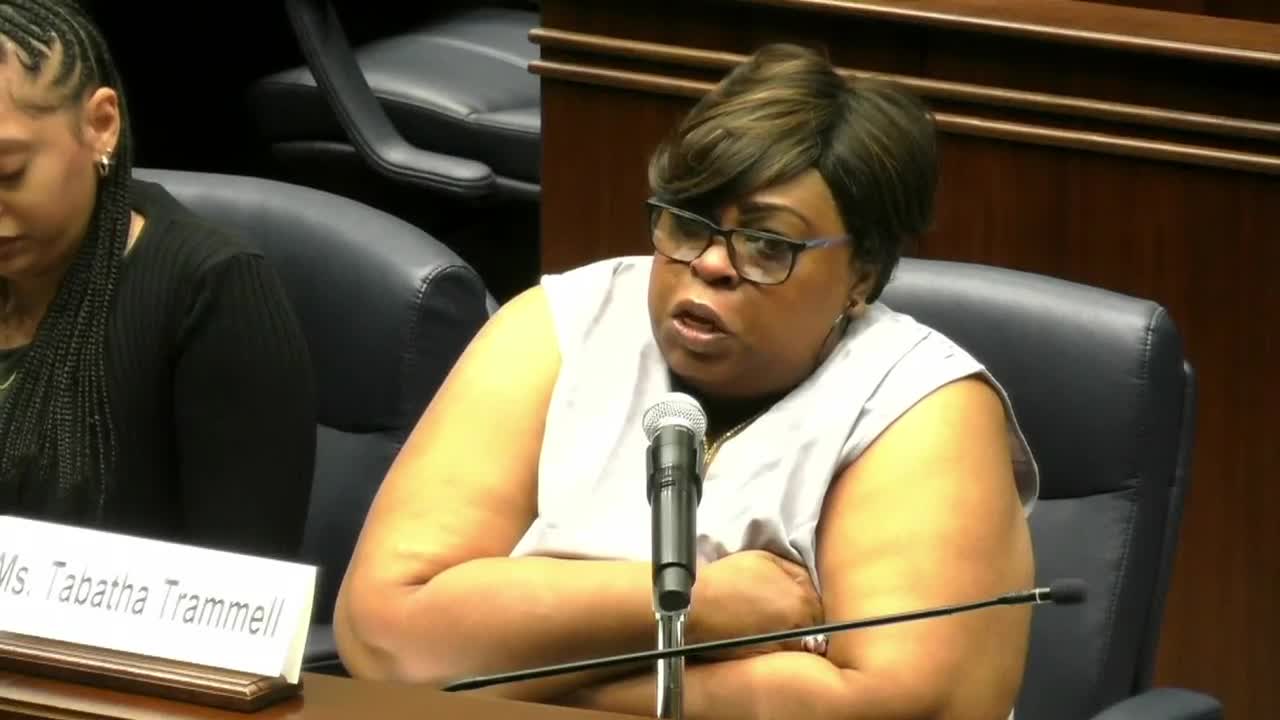Hearing reveals shocking failures in maternal infant bonding
August 14, 2024 | Judiciary: Senate Committee, Standing Committees - House & Senate, Congressional Hearings Compilation
This article was created by AI summarizing key points discussed. AI makes mistakes, so for full details and context, please refer to the video of the full meeting. Please report any errors so we can fix them. Report an error »

In a recent government meeting, significant concerns were raised regarding the treatment of mothers and infants within the healthcare and foster care systems in Georgia. Testimonies from advocates and affected individuals highlighted alarming patterns of neglect and trauma that impact both mothers and their newborns.
Miss Tramiel, a service provider, described the distressing experiences of women who often lack family support during critical moments after childbirth. Many mothers are unable to bond with their infants due to limited visitation rights, with some reporting only a single visit to their child in the Neonatal Intensive Care Unit (NICU). This lack of bonding time can lead to long-term emotional and psychological repercussions for both mothers and children.
The meeting also addressed the troubling trajectory many infants face when family support is unavailable. Miss Tramiel noted that these children frequently enter the foster care system, where they often receive inadequate support and information about their placement. This lack of communication exacerbates the trauma experienced by mothers, who are left in the dark about their child's whereabouts and well-being.
Further testimony revealed that conditions within the foster care system mirror those of detention facilities, raising serious concerns about the safety and welfare of children. Reports of sex trafficking and proposals to place foster children in juvenile detention due to a lack of placements were particularly alarming. The subcommittee investigating these issues emphasized the detrimental impact on children's prospects, suggesting that early neglect and trauma can lead to a cycle of abandonment and increased likelihood of future involvement with the criminal justice system.
Advocates underscored the importance of immediate bonding opportunities for mothers and infants, arguing that the denial of such connections not only affects individual families but also perpetuates broader societal issues. The meeting concluded with a call for systemic changes to ensure that mothers receive the support they need during and after childbirth, ultimately aiming to break the cycle of trauma and neglect that affects vulnerable families in Georgia.
Miss Tramiel, a service provider, described the distressing experiences of women who often lack family support during critical moments after childbirth. Many mothers are unable to bond with their infants due to limited visitation rights, with some reporting only a single visit to their child in the Neonatal Intensive Care Unit (NICU). This lack of bonding time can lead to long-term emotional and psychological repercussions for both mothers and children.
The meeting also addressed the troubling trajectory many infants face when family support is unavailable. Miss Tramiel noted that these children frequently enter the foster care system, where they often receive inadequate support and information about their placement. This lack of communication exacerbates the trauma experienced by mothers, who are left in the dark about their child's whereabouts and well-being.
Further testimony revealed that conditions within the foster care system mirror those of detention facilities, raising serious concerns about the safety and welfare of children. Reports of sex trafficking and proposals to place foster children in juvenile detention due to a lack of placements were particularly alarming. The subcommittee investigating these issues emphasized the detrimental impact on children's prospects, suggesting that early neglect and trauma can lead to a cycle of abandonment and increased likelihood of future involvement with the criminal justice system.
Advocates underscored the importance of immediate bonding opportunities for mothers and infants, arguing that the denial of such connections not only affects individual families but also perpetuates broader societal issues. The meeting concluded with a call for systemic changes to ensure that mothers receive the support they need during and after childbirth, ultimately aiming to break the cycle of trauma and neglect that affects vulnerable families in Georgia.
View full meeting
This article is based on a recent meeting—watch the full video and explore the complete transcript for deeper insights into the discussion.
View full meeting